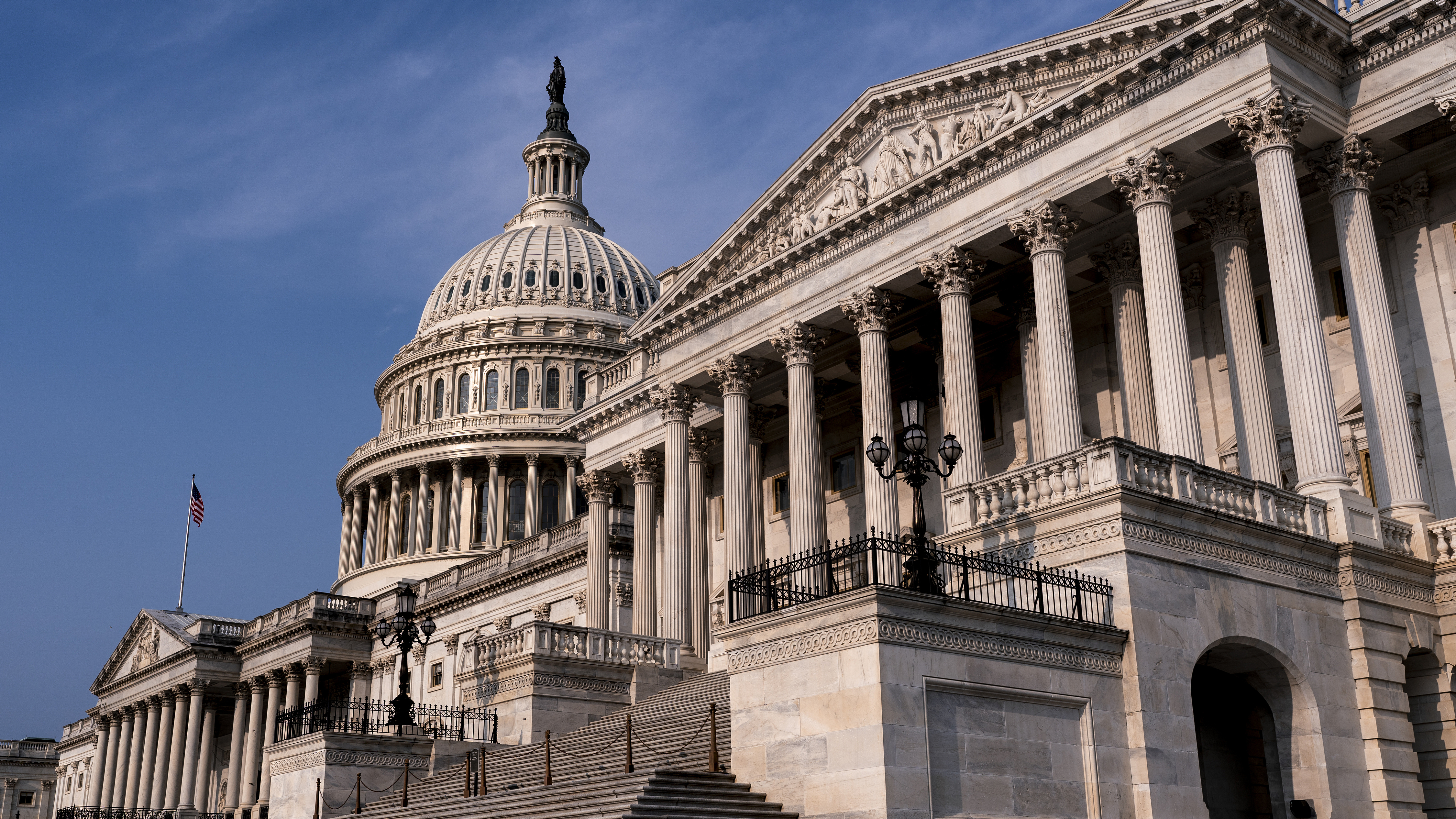CGTN

The U.S. Capitol in Washington, May 24, 2023. /CFP
Fitch Ratings, one of the world's top credit rating agencies, downgraded the U.S. government's credit rating from the top AAA to AA+ last week. Fitch said the rating cut as a result of the expected fiscal deterioration over the next three years, a high and growing general government debt burden, and the erosion of governance relative to peers over the last two decades.
Reactions are mixed. Stocks slipped after the downgrade, with the S&P 500 and Nasdaq falling for four days in a row after the announcement. U.S. political and economic leadership are in denial with Treasury Secretary Janet Yellen calling Fitch's move "arbitrary."
"Fitch's decision is puzzling in light of the economic strength we see in the United States. I strongly disagree with Fitch's decision, and I believe it is entirely unwarranted," Yellen said, citing it was based on outdated data. But it is the same data that the Federal Reserve uses.
Three former Treasury secretaries, including Timothy Geithner, Henry Paulson and Robert Rubin, told CNN recently that the U.S.' economy is resilient, but policymakers need to take the long view on the country's fiscal challenges.
Slowing down the economy
Economic experts said the credit downgrade indicates that the U.S. is less likely to pay off its growing debt. Size of the U.S. debt has risen sharply in the past decades, surpassing $32 trillion for the first time in June. After a rating cut, investors are expected to demand a higher interest rate for loans and U.S. debt would become more costly.
The federal government could lose some of its ability to spend on social welfare programs and projects that help stimulate the economy, which in the long term could slow economic growth and leave the nation vulnerable to financial setbacks, Shai Akabas, director of economic policy at the Bipartisan Policy Center, told U.S. media ABC News.
John Gong, vice president of Research and Strategy at the University of International Business and Economics, said the downgrade doesn't spell well for investors, either.
"For investors in the United States, things are more than safety and returns of their projects. They also look at the macro environment. The prospect of U.S. government defaulting its debt is hanging out there. That's a serious risk. I think that represents a huge blow to investor's confidence," said Gong.
The political drama
Fitch's downgrade came as the first by a major rating agency in more than a decade. In 2011, another member of the big three American rating agencies, S&P, downgraded the U.S. debt and has maintained its AA+ rating since then. Currently, Moody's has kept its AAA rating on U.S.
"If the negative political actions take place again more frequently, I think certainly it will have an impact on a bond rating agency, and it's expected to be going down," said Gong.
The negative political actions Gong refers to, include the recent round of political brinkmanship over government borrowing in June. A last-minute bipartisan deal was reached after months of a deadlock between the Democrats and Republicans, to avoid a fast-approaching default.
The two major U.S. political parties view the national debt differently. While Democratic leaders call for the limit to be raised, Republicans want to limit federal spending.
Wang Jinbin, deputy dean with school of economics at Renmin University of China, said the downgrade is an objective assessment of the risk of U.S. debt, and greater risks are in the making as the ratio of its fiscal deficit to GDP may soon surpass 120 percent.
"The lack of a fundamental mechanism for fiscal balance to address the U.S. debt problem is a major systemic risk to the world economy," said Wang, adding that the rating cut could also reduce the attractiveness of the U.S. dollar and relevant assets as international investors rethink asset allocation on a global scale.
No comments:
Post a Comment